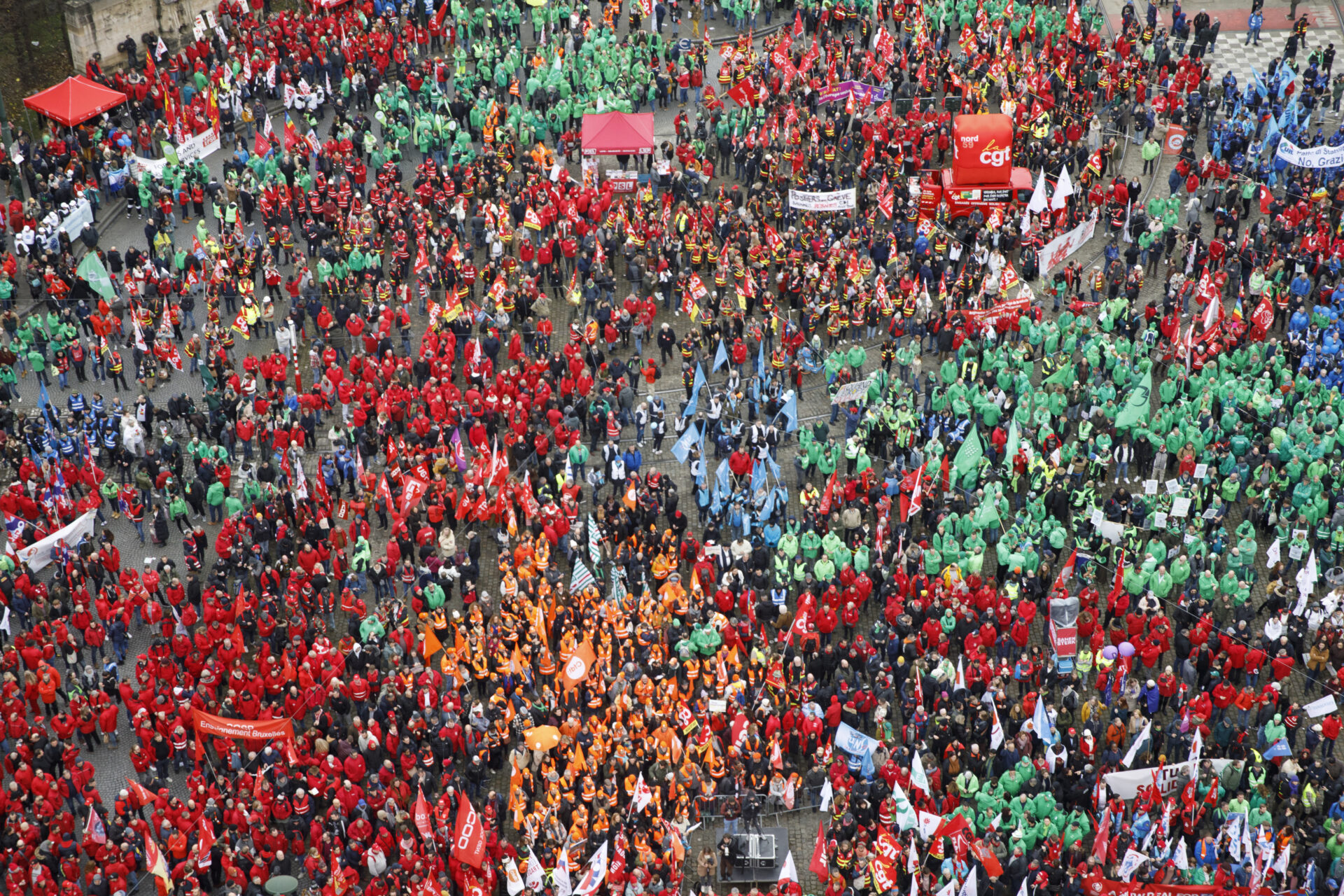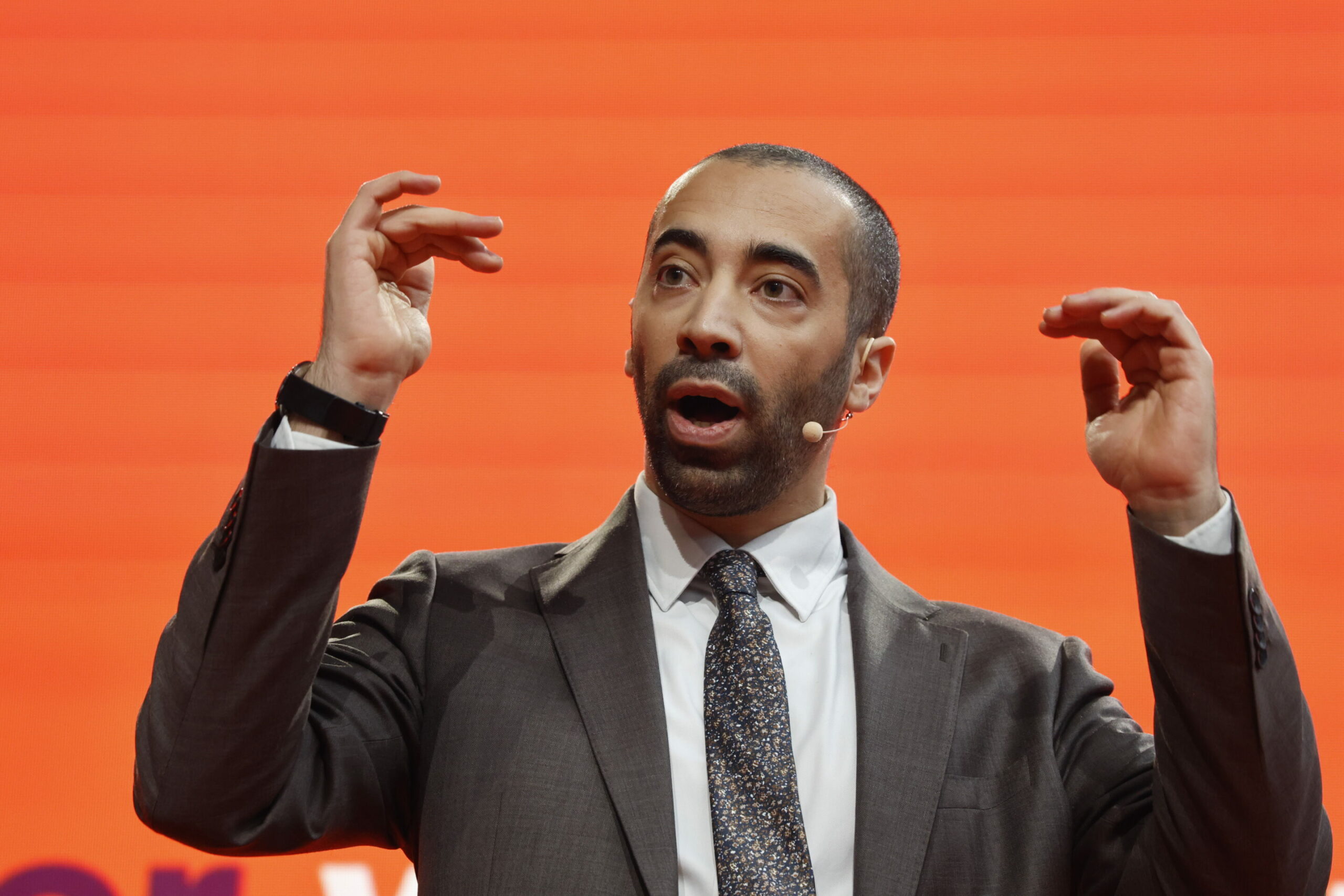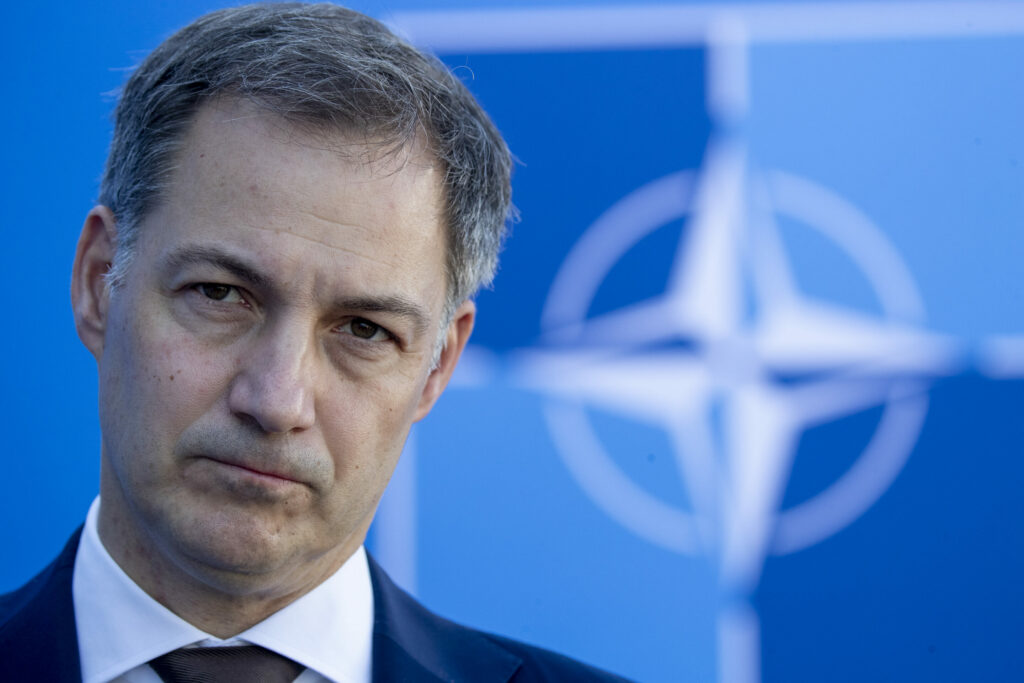Belgium plans to meet NATO's defence spending target early by implementing cuts to unemployment benefits and healthcare spending, Prime Minister Alexander De Croo told VTM Nieuws on Sunday.
De Croo's Flemish liberal party Open VLD had already announced its intention to accelerate defence spending on Friday. Originally planned for 2035, the party now wants Belgium to meet NATO standards – spending 2% of annual GDP on defence – six years earlier, by 2029.
Belgium currently spends 1.2% of GDP on defence, overtaking only Luxembourg out of alliance members.
De Croo stated that reaching the 2% target early was a conscious choice in the context of mounting security threats since the Russian invasion of Ukraine in February 2022.
"Europe has lived together peacefully for three generations," he said. "I want future generations to be able to do the same, but that means we have to arm ourselves better."

Aerial view of a demonstration against the European Union's plans to reintroduce austerity, in Brussels, Tuesday 12 December 2023. Credit: Belga / Hatim Kaghat
De Croo acknowledged that higher defence expenditure would necessitate cuts elsewhere. He explained that investment in the sector would entail the creation of 400,000 new jobs during the next mandate. This would in turn require huge efforts to help unemployed individuals secure jobs.
Asked whether this would mean cutting unemployment benefits, De Croo responded that this measure "seems logical for people who have been unemployed for a long time. [Benefits] could end after two years."
He added that helping people to find employment was an "act of solidarity" that helped Europe to feel more "secure".
Healthcare cuts
De Croo also highlighted plans to maintain better control over growing healthcare expenditure, on the rise since the Covid-19 pandemic. While the Prime Minister did not specify an exact figure, he stressed that spending would not go below 2% of annual GDP. "You have to make sure that the quality of care remains the same," he added.
CD&V leader Sammy Mahdi has criticised this last proposal, denouncing cuts to healthcare as "incomprehensible".
"Our healthcare system needs more resources," he said, emphasising the fact that Belgium's ageing population was constantly growing alongside the number of people with chronic care needs. He also pointed to the importance of improved mental health resources.

Christin democrat leader Sammy Mahdi. Credit: Belga / Nicolas Maeterlinck
Mahdi acknowledged the urgent context in which the conversation about defence is taking place, but views cuts to healthcare as an oversimplified budgetary solution.
Instead, he advocates for tax reforms that would result in higher net earnings: "Excessive healthcare spending should be eliminated, but the ordinary Belgian should never suffer."

